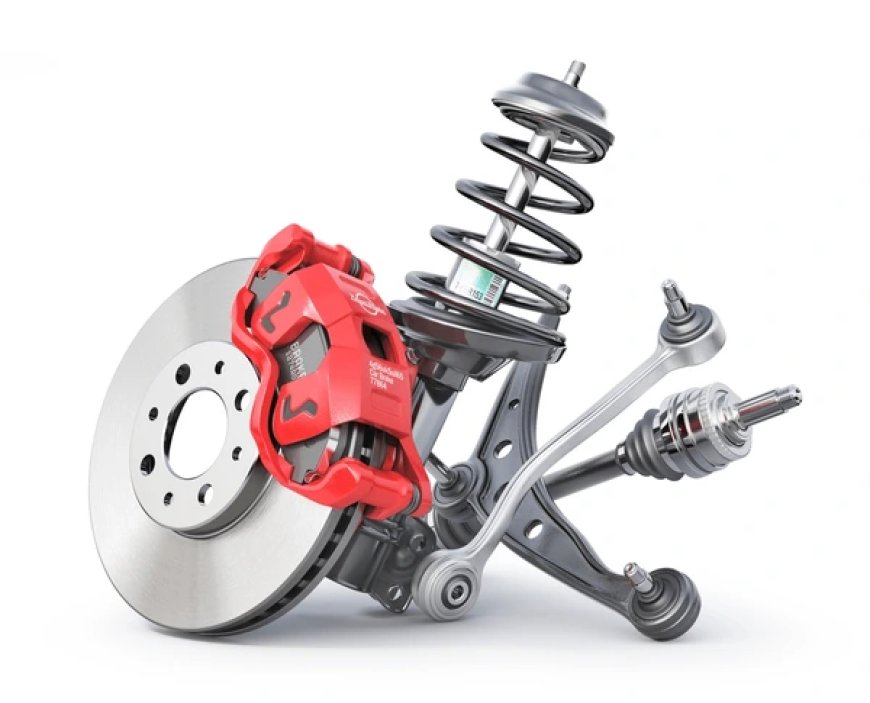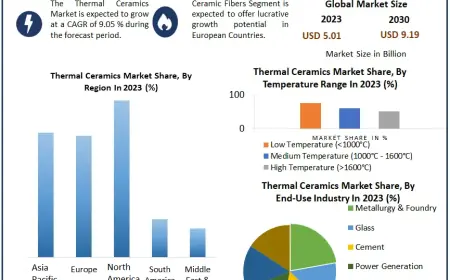Automotive Suspension Market Sees Unprecedented Growth Amid Surge in Vehicle Demand and Technological Advancements
The report projects robust growth for the global automotive suspension market, forecasting a healthy CAGR from 2022 to 2028.

Infinium Global Research recently released a comprehensive report on the automotive suspension market, offering detailed analysis of global and regional segments. The study delves into the influence of drivers, constraints, and macroeconomic factors on both short-term and long-term perspectives of the market. Emphasizing trends, forecasts, and monetary estimations, the report projects robust growth for the global automotive suspension market, forecasting a healthy CAGR from 2022 to 2028.
Market Dynamics :
Market Drivers:
· The automotive suspension market is experiencing unprecedented growth driven by a significant increase in global vehicle demand. This rise is particularly notable in emerging markets where economic growth and urbanization are driving higher vehicle ownership rates.
· Continuous innovations in automotive suspension systems, such as adaptive and semi-active suspensions, are enhancing vehicle comfort, stability, and performance. These advancements are attracting consumers looking for smoother rides and better handling capabilities.
· Stringent government regulations regarding vehicle safety and emissions are compelling automakers to integrate advanced suspension systems that improve both safety standards and fuel efficiency.
Market Restraints:
· The high initial costs associated with advanced suspension technologies, such as electronic and air suspensions, pose a significant restraint for widespread adoption, particularly in cost-sensitive markets and segments.
· Integrating sophisticated suspension systems into existing vehicle platforms can be challenging and costly for automakers. This complexity often requires substantial redesigns and reengineering, which can hinder the adoption rate among manufacturers.
Market Challenges:
· The automotive suspension market faces challenges related to supply chain disruptions, including shortages of key components and materials, which can impact production timelines and market availability.
· Rapid advancements in suspension technology may lead to concerns about technological obsolescence among consumers and automakers, requiring continuous investment in research and development to stay competitive.
· The presence of numerous market players, each offering diverse product portfolios and technological solutions, contributes to market fragmentation. This can make it difficult for consumers and automakers to navigate and choose the most suitable suspension solutions for their needs.
Sample pages of Report: https://www.infiniumglobalresearch.com/reports/sample-request/26471
Regional Analysis:
North America:
- North America is witnessing significant growth in the automotive suspension market due to a surge in vehicle sales and increasing consumer preference for comfortable and smooth rides.
- Adoption of advanced suspension technologies such as adaptive and air suspensions is high, driven by the demand for enhanced driving dynamics and comfort.
Europe:
- Europe remains a key market for automotive suspensions, driven by robust automotive production and growing consumer demand for luxury and high-performance vehicles.
- European consumers prioritize vehicle comfort and safety, stimulating demand for advanced suspension systems that offer superior handling and ride quality.
Asia Pacific:
- Asia Pacific is experiencing rapid growth in the automotive suspension market, fueled by the expanding automotive industry in countries like China, India, and Japan.
- Increasing disposable incomes and urbanization are driving demand for passenger and commercial vehicles equipped with advanced suspension systems.
Rest of the World:
- Other regions, including Latin America, Middle East, and Africa, are witnessing moderate growth in the automotive suspension market, influenced by economic development and infrastructure projects.
- Regulatory frameworks and vehicle safety standards vary across regions, impacting the adoption of advanced suspension technologies.
Market Segmentation:
By Suspension System Type:
- Dependent Suspension
- Independent Suspension
By Vehicle Type:
- Passenger Cars
- Commercial Vehicles
- Two-wheelers
By Technology:
- Hydraulic Suspension.
- Pneumatic Suspension
- Electromagnetic Suspension
- Active Suspension
By Component:
- Shock Absorbers
- Springs
- Control Arms
- Struts
By Sales Channel:
- OEM (Original Equipment Manufacturer)
- Aftermarket
Competitive Landscape:
Key Players:
· ZF Friedrichshafen AG
· Tenneco Inc
· Continental AG
· KYB Corporation
· BWI Group
Market Positioning:
· Premium Segment Leaders
· Mass Market Players
· Regional Players
Strategic Initiatives:
· Continuous R&D investments to develop lightweight materials, adaptive damping technologies, and active suspension systems to meet evolving consumer demands for comfort and performance.
· Strategic alliances with automotive OEMs to integrate advanced suspension systems into new vehicle models, enhancing market penetration and customer reach.
5. Competitive Strategies:
· Cost-effective manufacturing processes and supply chain optimization to maintain competitive pricing while ensuring product quality and reliability.
· Strong brand reputation and customer loyalty through superior product performance, reliability, and aftermarket support services.
· Focus on eco-friendly suspension solutions, such as recyclable materials and energy-efficient designs, to align with global sustainability goals and consumer preferences.
Report Overview:
https://www.infiniumglobalresearch.com/reports/global-automotive-suspension-market
Future Outlook:
The automotive suspension market is poised for significant growth, driven by a surge in vehicle demand and continuous technological advancements. As the global automotive industry expands, particularly in emerging economies, the need for advanced suspension systems that enhance vehicle comfort, stability, and performance is becoming paramount. Technological innovations such as adaptive suspensions, electric and hybrid vehicle suspensions, and advanced materials are expected to redefine the market landscape. Moreover, increasing consumer preference for comfortable and safer driving experiences is fueling the adoption of next-generation suspension technologies. With automakers focusing on enhancing fuel efficiency and reducing emissions, the demand for lightweight and efficient suspension systems is likely to escalate further. As a result, the automotive suspension market is anticipated to witness unprecedented growth in the coming years, driven by evolving consumer preferences and rapid technological advancements across the automotive sector.
Conclusion:
The report offers comprehensive insights into demand forecasts, market trends, and key micro and macro indicators. It also examines the factors propelling and inhibiting market growth. Furthermore, the IGR-Growth Matrix analysis in the report provides insights into potential investment areas for both existing and new market players. Analytical tools such as Porter's five forces analysis and DRO analysis are utilized to provide insights into the automotive suspension market. The study highlights current market trends and forecasts from 2022 to 2028, with a focus on future trends expected to impact demand during the forecast period. Additionally, competitive analysis across regional markets sheds light on the market share of leading players.
What's Your Reaction?
 Like
0
Like
0
 Dislike
0
Dislike
0
 Love
0
Love
0
 Funny
0
Funny
0
 Angry
0
Angry
0
 Sad
0
Sad
0
 Wow
0
Wow
0












































